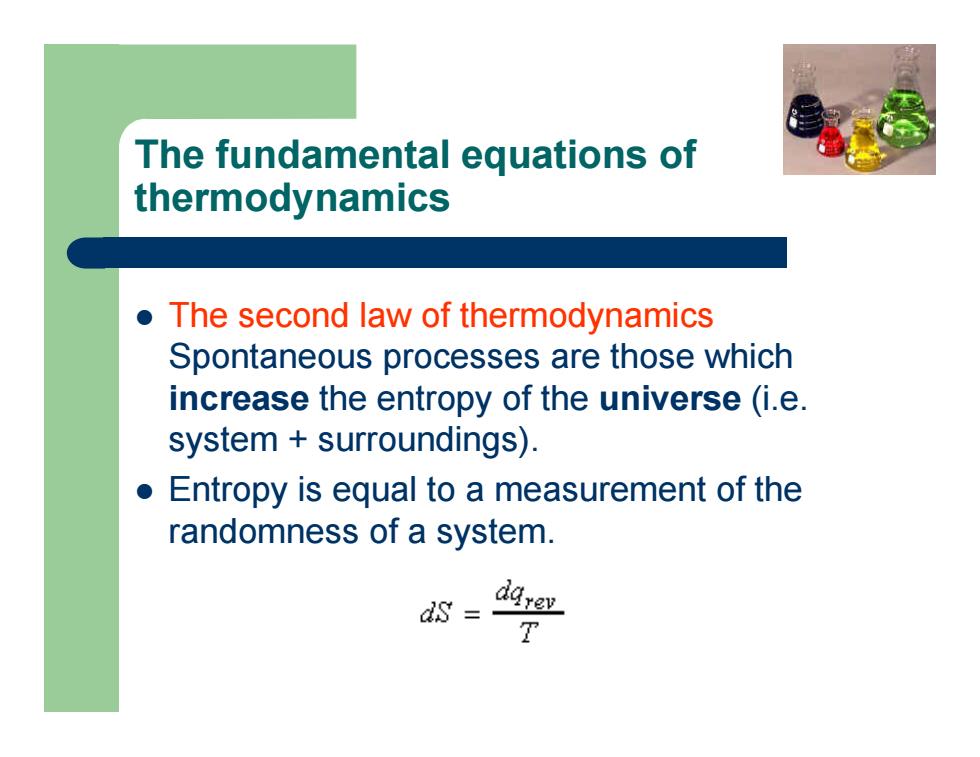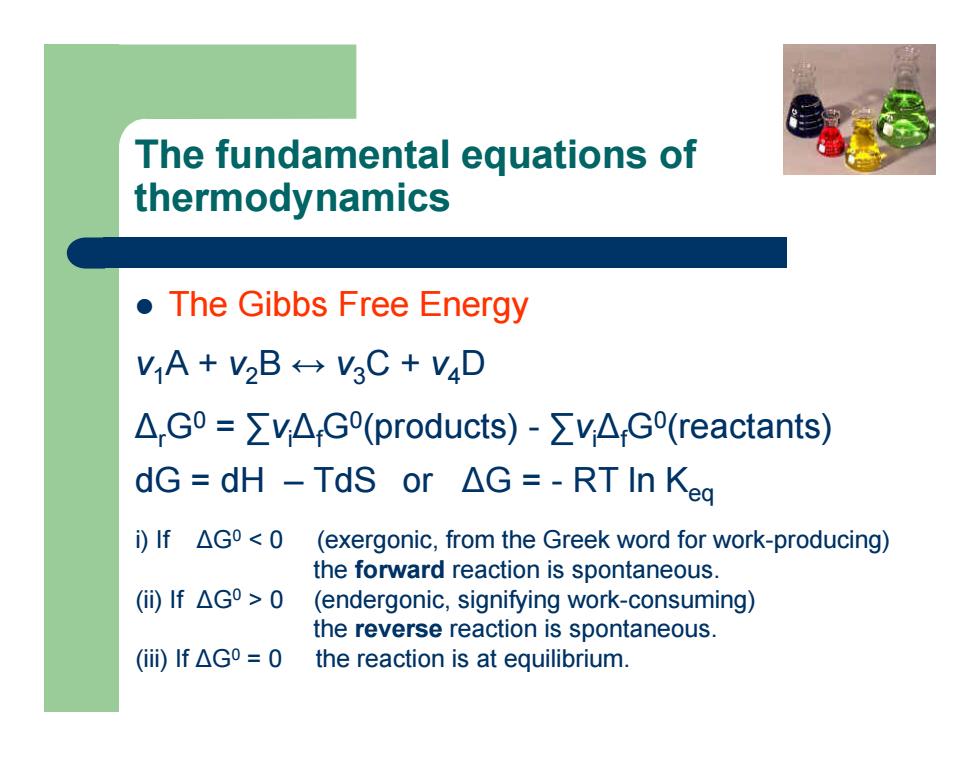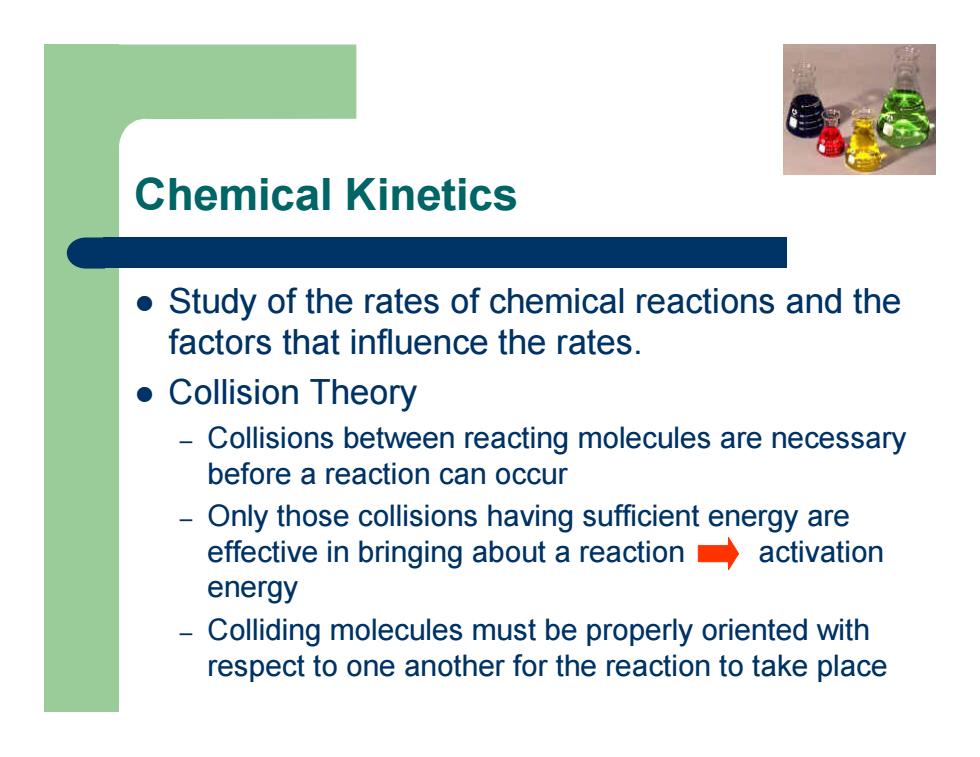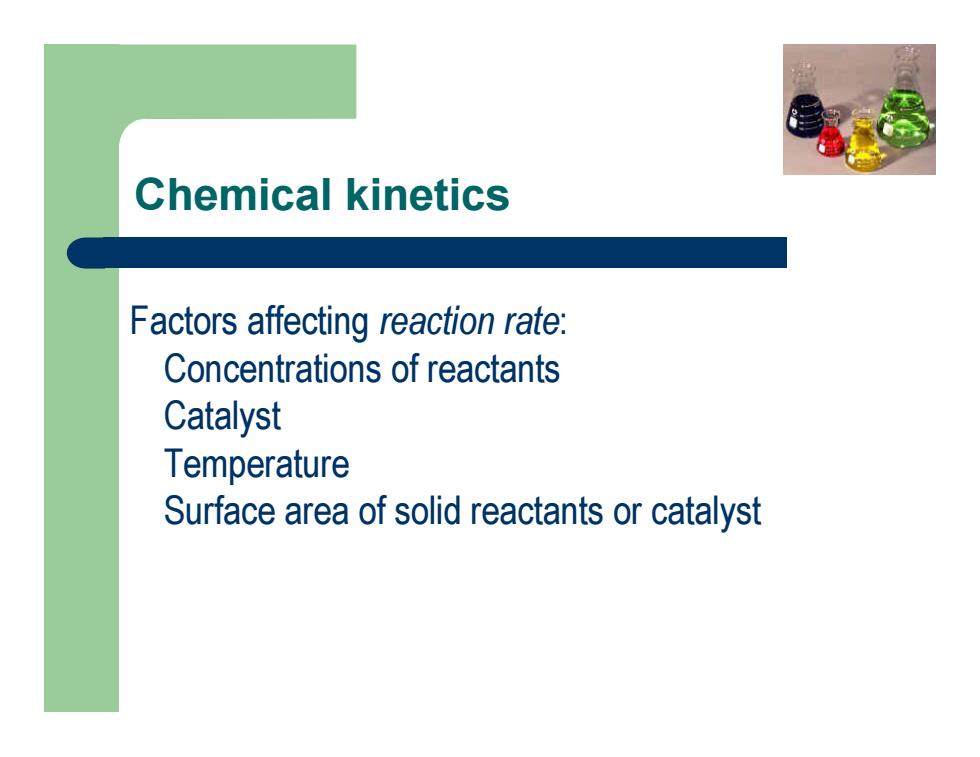
z The second law of thermodynamics Spontaneous processes are those which increase the entropy of the universe (i.e. system + surroundings). z Entropy is equal to a measurement of the randomness of a system. The fundamental equations of thermodynamics
z The second law of thermodynamics Spontaneous processes are those which increase the entropy of the universe (i.e. system + surroundings). z Entropy is equal to a measurement of the randomness of a system. The fundamental equations of thermodynamics

z The Gibbs Free Energy v1A + v2B ↔ v3C + v4D ΔrG0 = ∑viΔfG0(products) - ∑viΔfG0(reactants) dG = dH – TdS or ΔG = - RT ln Keq The fundamental equations of thermodynamics i) If ΔG0 < 0 (exergonic, from the Greek word for work-producing) the forward reaction is spontaneous. (ii) If ΔG0 > 0 (endergonic, signifying work-consuming) the reverse reaction is spontaneous. (iii) If ΔG0 = 0 the reaction is at equilibrium
z The Gibbs Free Energy v1A + v2B ↔ v3C + v4D ΔrG0 = ∑viΔfG0(products) - ∑viΔfG0(reactants) dG = dH – TdS or ΔG = - RT ln Keq The fundamental equations of thermodynamics i) If ΔG0 < 0 (exergonic, from the Greek word for work-producing) the forward reaction is spontaneous. (ii) If ΔG0 > 0 (endergonic, signifying work-consuming) the reverse reaction is spontaneous. (iii) If ΔG0 = 0 the reaction is at equilibrium

Chemical Kinetics z Study of the rates of chemical reactions and the factors that influence the rates. z Collision Theory – Collisions between reacting molecules are necessary before a reaction can occur – Only those collisions having sufficient energy are effective in bringing about a reaction activation energy – Colliding molecules must be properly oriented with respect to one another for the reaction to take place
Chemical Kinetics z Study of the rates of chemical reactions and the factors that influence the rates. z Collision Theory – Collisions between reacting molecules are necessary before a reaction can occur – Only those collisions having sufficient energy are effective in bringing about a reaction activation energy – Colliding molecules must be properly oriented with respect to one another for the reaction to take place

Chemical kinetics Factors affecting reaction rate: Concentrations of reactants Catalyst Temperature Surface area of solid reactants or catalyst
Chemical kinetics Factors affecting reaction rate: Concentrations of reactants Catalyst Temperature Surface area of solid reactants or catalyst